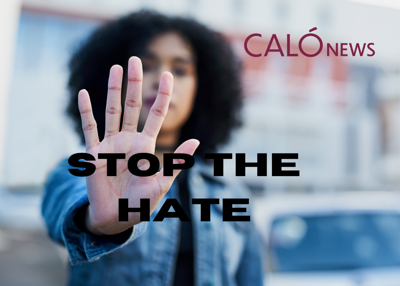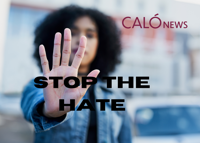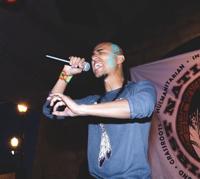The Inland Empire has emerged as one of the fastest-growing regions in Southern California, boasting an estimated Latino population of approximately 2.37 million individuals, according to a study conducted by the Center for Social Innovation in partnership with the Cielo Fund.
However, recent statistics indicate that the region is becoming increasingly susceptible to a surge in hate crimes.
The Department of Justice (DOJ) defines a hate crime as an offense committed against a person, group, or property driven by the victim's real or perceived disability, gender, nationality, race or ethnicity, religion, sexual orientation, or association with individuals who belong to one or more of these groups. Hate crimes are considered serious offenses and can lead to imprisonment or jail time.
In contrast, a hate incident refers to actions or behaviors motivated by hate that do not meet the legal threshold of a crime. Examples of hate incidents include name-calling, insults, displaying hateful materials on private property, posting such materials without causing property damage, and distributing hate messages in public spaces. While not criminal, hate incidents can still contribute to a hostile environment.
According to the 2023 annual hate crime report by the California Department of Justice, “over the last 10 years, reported hate crime events have increased by 159.9%.” Riverside County recorded 35 events, 38 victims, and 28 suspects of hate crimes, while San Bernardino accounted for 28 events, 32 victims, and 23 suspects.
The report also indicates that there were 199 anti-Hispanic or Latino hate crimes, 151 anti-LGBTQ+ bias events, 65 anti-transgender bias events, and 11 anti-gender nonconforming events state-wise.
“There are hate crimes that are reported, but there are so many hate crimes that […] don't go reported, and it's because people don't know who to report to. There's a fear [and] misconceptions about policing,” said Sabrina Gonzalez, Executive Director of the Civil Rights Institute of Inland Southern California.
To offer an answer to these statistics, a group of community leaders from the Inland Empire that includes Anthony Noriega, director LULAC district 5 of Inland Empire, Myles Ross, president of Riverside Southwest NAACP Lake Elsinore, Emily Romero, program coordinator for the Coalition for Humane Immigrant Rights, (CHRILA), Christopher Vasquez, regional field Coordinator for (CHRILA), Sabrina Gonzales, executive director of the Civil Rights Institute of Inland Southern California, and Gustavo A. Guerra Vásquez, conciliation specialist for the Western Region for the U.S. Department of Justice Community Relations gathered in October 2023 to create the Inland Counties Anti-Hate Coalition.
The Coalition's mission is to educate, inform, and empower the Inland Empire community “to stand united against hate.” To this end, they aim to host a series of anti-hate forums to offer resources and promote necessary dialogues about these issues.
The inaugural Forum, held at theCivic Rights Institute of Inland Southern California on June 1st, received a positive reception from the community. This success prompted the planning of a second event hosted at San Bernardino Valley College on September 21st.
The event featured two panels. The first, moderated by the Department of Justice (DOJ), provided insights from regional and local government officials and law enforcement representatives on identifying and reporting hate crimes and incidents. It also provided information about the joint strategies that the different government agencies use to address these issues. The second panel highlighted the contributions of community leaders and the resources available through local non-profit organizations to support the Inland Empire community.
“We're still finding that there is a big, disconnected distrust with police and how people can report," said Gonzalez, emphasizing the ongoing challenge of a significant skepticism between the community and law enforcement, particularly when it comes to reporting issues. She highlighted that one of the critical local issues is the need to start these conversations early. Gonzalez praised the collaboration with the NAACP San Bernardino, which focused on youth engagement and fostering honest dialogues.
She noted that these conversations are essential across all age groups, from young people to seniors, and involve navigating complex dynamics. For Gonzalez, it is crucial to acknowledge that while data points provide some insight, they don't always capture the full picture, as reporting on hate crimes is not standardized, and many individuals struggle with understanding where they fit within the system.
Microaggressions represent another significant consideration in anti-hate discussions. Gonzales articulates that microaggressions can be particularly challenging due to their often subtle nature, whether intentional or inadvertent. These remarks or actions, though seemingly minor, can have profound and lasting effects. Regardless of the individual's intent, the consequences can still be detrimental, conveying hostile or derogatory sentiments toward aspects such as race, culture, beliefs, sexual orientation, or gender.
Microaggressions can take many forms, from assumptions based on gender or identity to inappropriate jokes or comments that undermine someone's dignity. Gonzalez considers that these apparently small acts of racism, homophobia, or sexism can accumulate and have substantial, harmful effects. She advocates for addressing them when possible or recognizing when walking away is necessary. Although labeled "micro," these actions can create a pervasive and hurtful environment, particularly in the workplace, where individuals may feel powerless to challenge them.
People can report hate crimes and incidents online or by calling the CA vs. Hate phone Line at (833) 866-4283, available Monday through Friday from 9am to 6pm The line offers trained civil rights agents fluent in more than 200 languages, and the service also has a voicemail option during after-hours.
Another available line to report is calling 211, which offers culturally competent professionals in trauma-informed practices. It’s important to note that these lines are non-emergency hotlines; for a dangerous or emergency situation, individuals must call 911.
CA vs. Hate also offers a handout available in English andSpanish with more information about the program and how to report.
As these efforts grow, it’s clear that the fight against hate is not just about responding to individual incidents—it’s about building a culture of inclusion, respect, and safety for all. The fight is far from over, but for those advocating for change, there is a determination that hate will not have the final word in the Inland Empire.











(0) comments
Welcome to the discussion.
Log In
Keep it Clean. Please avoid obscene, vulgar, lewd, racist or sexually-oriented language.
PLEASE TURN OFF YOUR CAPS LOCK.
Don't Threaten. Threats of harming another person will not be tolerated.
Be Truthful. Don't knowingly lie about anyone or anything.
Be Nice. No racism, sexism or any sort of -ism that is degrading to another person.
Be Proactive. Use the 'Report' link on each comment to let us know of abusive posts.
Share with Us. We'd love to hear eyewitness accounts, the history behind an article.